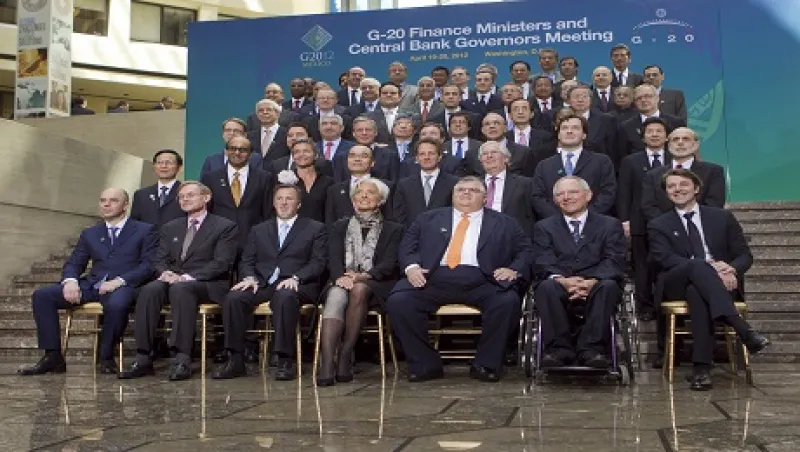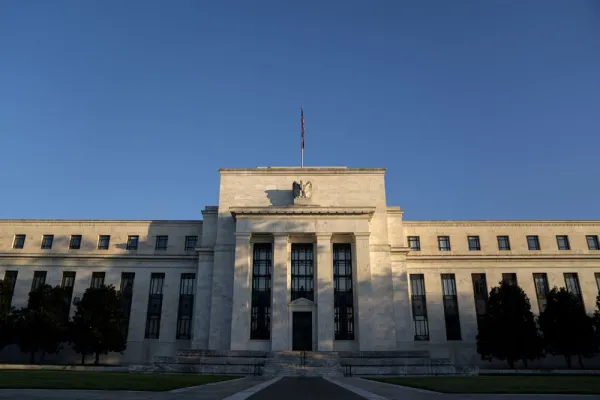Policymakers and financiers seem to be getting into a funk over what they regard as a drought of long-term financing for everything from infrastructure projects to business expansion to even housing.
So concerned are bodies leading advanced and emerging economies, such as the Group of Twenty, that they are mobilizing the resources of just about every major international organization to study and report upon the perceived problem.
This preoccupation seems odd because, with so much money being printed lately by leading central banks and with short-term interest rates at record lows, funds ought to be chasing longer-term investment opportunities wherever they can find them.
The paradox can be explained, say some analysts, by the economic policies of some of the leading countries themselves. The quantitative easing of major central banks are distorting markets and reducing incentives to save and invest for the long term, these critic say.
The Group of Thirty, an advisory body that groups high-level officials, past and present, bankers and economists, began sounding the alarm in February when it published a weighty report suggesting that sweeping institutional and regulatory reforms are needed to stave off a financing drought. “Far-reaching reforms in the international financial system will be needed to ensure that rising demands for long-term capital can be met efficiently,” said Jean-Claude Trichet, the group’s chairman and former president of the European Central Bank. “If such reforms are not undertaken, we will likely face significant shortfalls in finance in coming years.”
Spending on long-term investments totaled $11.7 trillion in nine leading countries — Brazil, China, France, Germany, India, Japan, Mexico, the U.K. and the U.S. — in 2010, according to the Group of Thirty report. That spending will need to rise to $18.8 trillion a year by 2020 “to achieve even moderate levels of economic growth,” the report states.
Some of the natural suppliers of long-term investment are being pushed in the opposite direction, though, the report claimed. Funding shortfalls and a desire to match liabilities have led many pension funds in the West to reduce allocations to equities and load up on fixed-income securities perceived to carry less risk, the report said. Manyt insurance companies have been doing the same thing, especially in Europe, where the pending Solvency II capital adequacy rules are prompting many insurers to dial down their investment risk.
Guillermo Ortiz Martínez, chairman of Mexico’s Grupo Financiero Banorte and former governor of Banco de México who chaired a G30 steering committee on the financing topic, said authorities need to create new instruments that can channel savings into long-term investments. He also urged the public sector to find ways to leverage private capital, including a greater use of public-private partnerships. “Major changes are needed in the ways in which the global financial system is configured in order to meet growing long-term capital needs efficiently and sustainably,” he said.
The G-20 added its voice to the debate by declaring at its Moscow meeting of finance ministers and central bank governors in February that the availability of long-term financing for investment must become a global priority. In the aftermath of the global financial crisis, a decline in bank lending and syndicated loans — traditionally among the largest sources of infrastructure financing — is one of the key issues holding back investment, according to a report prepared for the G-20 meeting by a host of international agencies led by the World Bank.
The ministers agreed to set up a study group to prepare a report for the G-20 summit meeting in St. Petersburg, Russia, in September. The group will work closely with the World Bank, the International Monetary Fund, the Organization for Economic Cooperation and Development, the Financial Stability Board, the United Nations and Unctad, to name but a few international organizations.
Is all this activity a case of taking a sledge hammer to crack a nut? Arguably not. The demand for more and better infrastructure is rising around the world, and the mechanisms for transforming savings into long-term investment do not function with the precision of a Swiss watch.
But some observers say officials are overlooking some obvious issues. As Ernest Kepper, a former Wall Street investment banker and senior World Bank executive says, the G-20 and others need to look closer to home for the root of the problem.
“The shortage of long-term finance is tied to the fact that the current system is punishing those who save, while rewarding irresponsible spenders,” says Kepper. “Unrestrained money printing is undermining confidence in the purchasing power of the currency investors receive as repayment. I expect this situation to continue, which will undermine the supply of long-term funds for investment.”
William Thomson, a former U.S. Treasury official and one-time vice president of the Asian Development Bank, suggests that the heart of the long-term investment problem is a “savings crisis.” He blames underfunded and over-promised entitlements for pensions and health care in rapidly aging societies in the advanced economies, combined with the massive borrowings of governments and the zero interest rate monetary policies of major central banks. “Savings are unlikely to recover until welfare and taxation policies are reformed, deficits reduced and monetary policy is normalized,” says Thomson, who chairs the Hong Kong investment advisory firm Private Capital.






